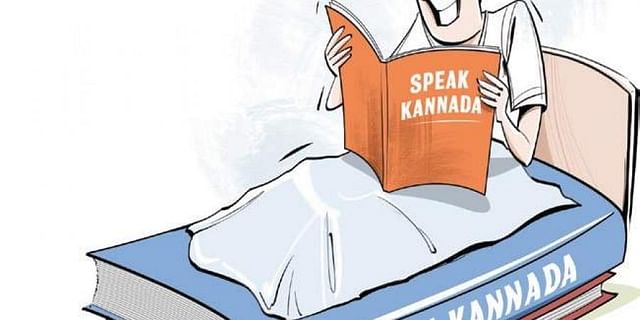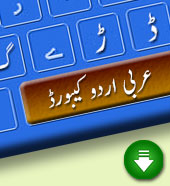Live Makkah
Live Madinah
Urdu Font Download
Latest News:
Padubidri: Fishing boat capsizes; all 7 fishermen on board rescued Alleged atrocity on lawyer: Punjalakatte SI suspended Moral policing at jewellery shop: 4 arrested Bajrang Dal activists try to assault youth, girlfriend in Mangaluru SC to hear Bilkis Bano’s plea against release of 11 convicts on 13 Dec Nusrat Noor: First Muslim Woman to Top Jharkhand Public Service Commission
Latest News:
Padubidri: Fishing boat capsizes; all 7 fishermen on board rescued Alleged atrocity on lawyer: Punjalakatte SI suspended Moral policing at jewellery shop: 4 arrested Bajrang Dal activists try to assault youth, girlfriend in Mangaluru SC to hear Bilkis Bano’s plea against release of 11 convicts on 13 Dec Nusrat Noor: First Muslim Woman to Top Jharkhand Public Service Commission
Language teachers in a quandary as Kannada made mandatory under NEP

BENGALURU, 31 Oct 2021 [Fik/News Sources]: The hasty manner in which the National Education Policy (NEP) is being enforced has led to chaos during the start of the new academic year. With learning Kannada made mandatory in UG programmes under the policy, the language teachers face the threat of losing their livelihood.
The policy makes it mandatory for students native to Karnataka to study Kannada in their first year in college. The candidates hailing from other states will be required to study functional Kannada for one semester and have the option to choose a different language for another semester in their first year.
The policy which has been put in force has led to a drastic shortage of teaching hours for other language teachers. Teaching hours for Kannada teachers, however, have gone up. Numerous Bengaluru colleges are scrambling to hire staff to make up for the compulsory Kannada hours.
Francis D’Almeida, principal of Loyola Degree College, expressed concern over the development, saying, “While it is a step towards holistic education, it is detrimental to the management because of the difficulty in arranging Kannada lecturers.”
A few teachers agreed to talk to The New Indian Express on the issue on condition of anonymity.
A Sanskrit professor said, “All our classes have been shuffled, there’s definitely a paring down of hours. We’re paid on an hourly basis which means our pay would get slashed.”
Four Sanskrit organisations, Samskrita Bharati (Karnataka) Trust, Mahavidyalaya Samskrita Pradhyapaka Sangha, Hayagriva Trust, and Vyoma Linguistic Labs Foundation, filed a PIL in early October questioning the decision of the government to implement compulsory Kannada for students.
On October 26, Karnataka High Court orally asked the state government to reconsider its policy decision making compulsory the Kannada language as a subject for degree students. The court will hear the matter next on November 10. Failure from the government to reconsider its decision will result in orders dated August 7, 2021, and September 15, 2021, to be stayed.
“So far we haven’t received any orders from the government to revise the decision,” said Prof B Thimme Gowda, vice-chairman of KSHEC, “We are only an advisory body, ultimately, the state government needs to make a decision.”
Speaking to The New Indian Express, Dr Shridhara Bhat, head of the Sanskrit department at SDM College, Ujire, and part of one of the petitioning organisations, said, “Freedom of selection of language should be given to the students. Compulsory Kannada curtails that freedom and we had many dissatisfied students come to us complaining as a result, so we’ve moved the PIL.”
“While the college has been good with updating us, there’s still no point in implementing a different language for only one semester. It defeats the purpose of learning a new language,” said another professor who teaches Tamil.
A Sanskrit professor mentioned that the effects were just as bad for the students, saying, “We’re all Kannadigas, we’ve been taught in Kannada medium, so have a lot of students. They know Kannada and want to use college as an opportunity to learn other languages. Why restrict them?”. He also went on to mention that his college has withheld making any announcement about the changes to language hours until the government reaches conclusion.
“There’s still a lot of confusion and the conditions might be subject to change any day, so we haven’t received any formal announcements,” he said.
Dr Bhat mentioned that numerous efforts were made to discuss the issue with Higher Education Minister Dr C. N. Ashwath Narayan, KSCHE Vice-Chairman, and various MLAs, MPs, and political leaders.
They responded saying, ‘We’ll look into it," but they have done nothing. "They have left us with no other choice but to take the matter to the court,” he said.
The petition mentions that the implementation of NEP could affect the education of over one lakh students and the livelihoods of 4000 teachers in the state.
Prayer Timings
| Fajr | فجر | |
| Dhuhr | الظهر | |
| Asr | أسر | |
| Maghrib | مغرب | |
| Isha | عشا |







